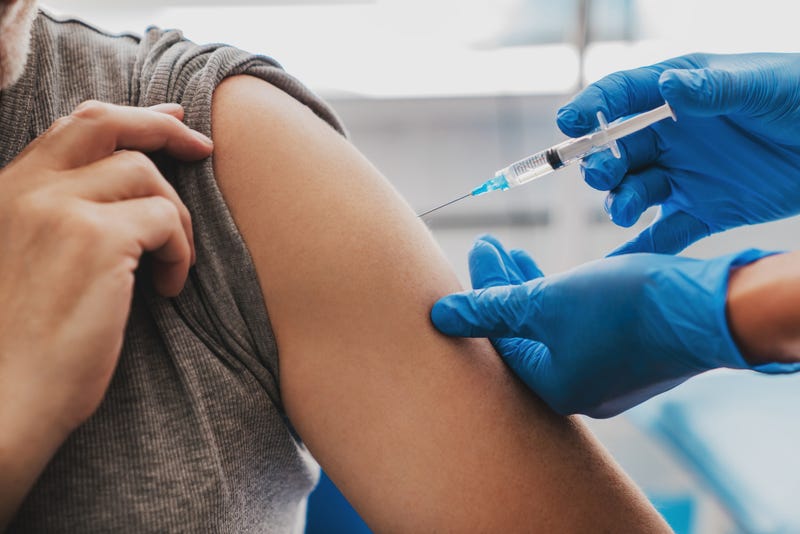
Scientists in North America and Europe are in the early stages of research into modifications to Johnson & Johnson and AstraZeneca COVID-19 vaccines that could reduce the risk of blood clots.
Listen to your favorite News/Talk station now on Audacy
These vaccines pose a risk for blood clots because antibodies they induce attach to proteins involved in clotting, explained a study published the Nature science journal, the Wall Street Journal reports. Incidents of blot clots due to the vaccines are dangerous but “incredibly rare,” says Science News.
Out of 100,000 people who receive the AstraZeneca vaccine, 1 to 2 experience a condition called vaccine-induced immune thrombotic thrombocytopenia, which is characterized by blood clotting and low platelets, according to European and U.K. data. In the U.S., the Johnson & Johnson vaccine has a lower rate of the complication, around .3 incidents per 100,000 people.
Johnson & Johnson and AstraZeneca are working with researchers to reduce this risk further with potential modifications to the vaccines.
Study findings could help researchers and doctors rapidly test and treat unusual clotting, but more research is needed regarding whether the culprit is one or more ingredients in the vaccines, the purification process, or a mechanical element in the vaccine.
Researchers hope to identify the exact cause of vaccine related clots and re-engineer the AstraZeneca vaccine by next year. However, it may be too early to tell if this is possible or if it would make commercial sense.
“Apart from the scientific hurdles, modifications might require changes to ownership rights or regulatory approvals,” said the outlet. Even so, modifications could help the companies eventually make a profit on the vaccines.
Use of Johnson & Johnson was halted in April due to concerns about clotting, but resumed with a warning on the vaccine. Though used widely throughout the world, the AstraZeneca vaccine is not approved in the U.S.
In addition to the blood clotting issue, the Food and Drug Administration announced Monday that the Johnson & Johnson vaccine (the only single-shot COVID-19 vaccine available) would carry a new warning about the serious but rare side effect of Guillain-Barré syndrome, which causes the immune system attacks the nerves.
Around 100 cases of the syndrome were found after 12.8 million doses of the vaccine were administered, said the Washington Post.
LISTEN on the Audacy App
Sign Up and Follow Audacy
Facebook | Twitter | Instagram

